8 George A. Romero Movies You Need To See
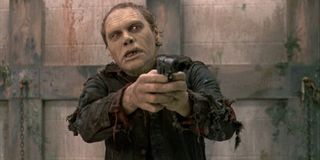
In the world of horror, there are amateurs and there are artists, but there are very few masters. However, George A. Romero always emerges as one of the few to consistently earn the title of bonafide horror legend. The king of the zombie genre consistently redefined the style (and filmmaking as a whole) throughout his long career, and the world of movies was rocked to its core yesterday when we learned that Romero passed away at the age of 77.
To properly honor the life of the master of the undead, we have put together a list of "must see" Romero movies that should be at the top of any horror fan's queue. While there are certainly other good Romero films out there that are worth your time (most of his filmography is horror gold), these are the films that will instantly tell you who he was as a filmmaker and as a human being. On that note, let's kick this off with a look at George Romero's take on the tried and true found footage formula.
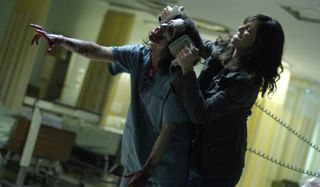
Diary of the Dead
While Diary of the Dead is far from George A. Romero's best entry in his own zombie franchise (not by a long shot, in fact), it is still fascinating to look back on it and see what he did with the found footage format. Capably directed and tense to a fault, Diary of the Dead takes a far more stripped down approach to the zombie genre than other recent takes on the formula, and it is hands down one of the better American-made found footage horror films of the last few years. Above all else, Diary showed that Romero was willing to try new things, embrace modern filmmaking trends and try his own unique version of an existing formula. Without question, he succeeded in doing so.
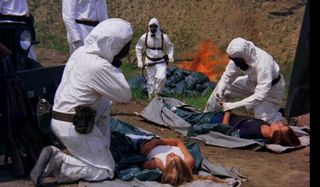
The Crazies
Romero's 1973 horror flick The Crazies was his first foray into the realm of mainstream filmmaking (as opposed to the amateur, guerilla style used on Night of the Living Dead), and the film represents the perfect bridge to showcase his evolution between his first two zombie films. Centering on a town driven mad when a bioweapon accidentally spills into its water supply, the film follows a group of people trying to survive while the government attempts to cover its tracks. Although the 2010 remake delivers decidedly better scares than the original, Romero's Crazies features his usual anti-establishment commentary in almost every frame of celluloid, and this film should be considered required viewing for anyone who wants to get to know the mentality of the man behind the camera.
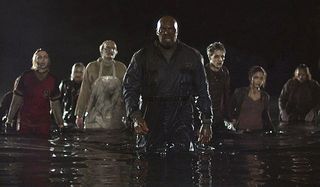
Land of the Dead
Land of the Dead is unquestionably George A. Romero's boldest entry in his zombie franchise, and while it doesn't feel like a cohesive addition to the pantheon of Dead movies, it stands on its own as an incredibly entertaining and thought-provoking zombie movie. Centering on a city of survivors living years after the initial outbreak, Land of the Dead follows a group of mercenaries who have mastered the "land of the dead" and use high tech weaponry to keep their people safe and supplied. In a world of properties like The Walking Dead and Snowpiercer, Land of the Dead very much feels ahead of its time, and it's clear that Romero saw the potential for dystopian storytelling in the zombie world long before Rick Grimes hit the scene.
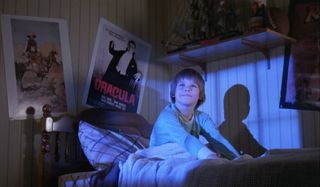
Creepshow
Horror anthologies come in all shapes and sizes these days, and there's an argument to be made that this model of short-form horror storytelling is a perfect way to deliver scares economically. However, without George A. Romero's work on Creepshow, we likely wouldn't have films like V/H/S or XX. Taking a decidedly more comedic approach to his subject matter than the other movies in his filmography, Creepshow tells the frighteningly entertaining stories of monsters locked inside of crates, extraterrestrial fungi and creepy crawlers, among other things. Creepshow arguably embraces it B-movie charm more than any other entry on Romero's resume, and as such, it has become a template for campy horror that everyone from Sam Raimi to Greg Nicotero has attempted to imitate or homage in some form or another over the years.
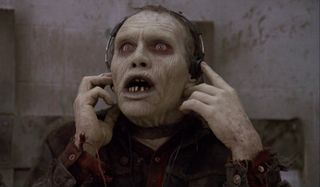
Day of the Dead
Of all the films in George A. Romero's original Dead trilogy, Day of the Dead is often regarded as the most divisive. A far more cerebral zombie film rather than a full-blown headshot fest, Day takes place in an underground bunker where military personnel and scientists live a contentious relationship while trying to survive an undead horde living above them. Featuring some of the most gruesome gore ever depicted on screen, Day of the Dead is arguably most famous for its fan-favorite zombie "Bub," who showed the world that Romero zombies maintain a small portion of their personality even after everything else has died. All in all, it's a biting piece of commentary on the military industrial complex, and a beautiful message about the nature of life.
CINEMABLEND NEWSLETTER
Your Daily Blend of Entertainment News
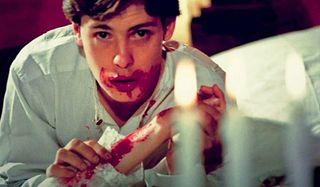
Martin
George A. Romero didn't just deal in the world of zombies during his time as a master of horror. He also dealt in the realm of vampires as well... sort of. Centering on a young man who believes that he has turned into a ravenous vampire, Martin follows the shockingly violent exploits of its titular character as he slices into his victims with razor blades and drinks their blood. The film has become legendary for its shocking depictions of brutality and violence in the years since its release, but it also serves as a phenomenally subversive take on the traditional vampire story. It's never made entirely clear whether or not Martin is actually a vampire, and the film speaks to a much bigger question of mental illness than the supernatural.
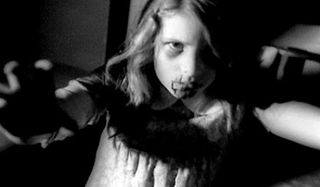
Night of the Living Dead
"They're coming to get you, Barbara." With that one line of dialogue (not to mention buckets upon buckets of blood), George A. Romero solidified his place in the annals of horror history. Night of the Living Dead is the movie that thrust zombies into the mainstream when it landed on the scene back in 1968, and the film's depiction of a world gone mad in the early stages of a viral zombie outbreak has become the template by which all other zombie movies merely copy. Couple that expert filmmaking with the film's biting commentary about American racism, and you find yourself left with a masterclass in 1960s horror. Other zombie films have attempted to innovate and try something new, but all of them have Night's DNA deep within their narratives.
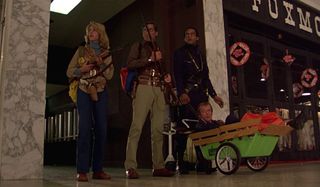
Dawn of the Dead
Although Night of the Living Dead established the basic formula for zombie filmmaking, Dawn of the Dead perfected it. Focusing its thematic angst on rampant American consumerism, Dawn of the Dead used its stronger cast and better production values to deliver a powerful horror epic about four survivors establishing a new life for themselves within the confines of an enormous shopping mall. The film features incredible makeup effects courtesy of zombie legend Tom Savini, and it features some of the most iconic zombies (Flyboy is an instant classic) and zombie kills ever committed to film. George A. Romero will be remembered for all of his films, but Dawn of the Dead deserves to be considered the magnum opus of his long and prosperous career as a horror genius.
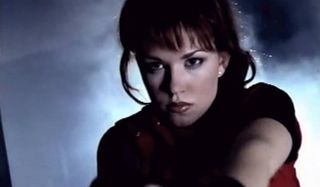
Honorable Mention: The Resident Evil 2 Commercial
Before Paul W.S. Anderson and Milla Jovovich stepped took the Resident Evil film franchise in an action-centric direction, George A. Romero was attached to helm the first installment in the franchise. He got the job by directing a commercial for the Resident Evil 2 video game -- a commercial which captures the spirit of the games better than any of the films that have followed in its wake. While the Resident Evil 2 commercial isn't a feature, it continues to shine as an example of George A. Romero's stylish take on the walking dead, and it stands out as a symbol of what could've been. Whoever takes over Resident Evil (once the anticipated reboot goes into effect) would be wise to look to Romero for inspiration, rather than Anderson.
Originally from Connecticut, Conner grew up in San Diego and graduated from Chapman University in 2014. He now lives in Los Angeles working in and around the entertainment industry and can mostly be found binging horror movies and chugging coffee.
Most Popular








